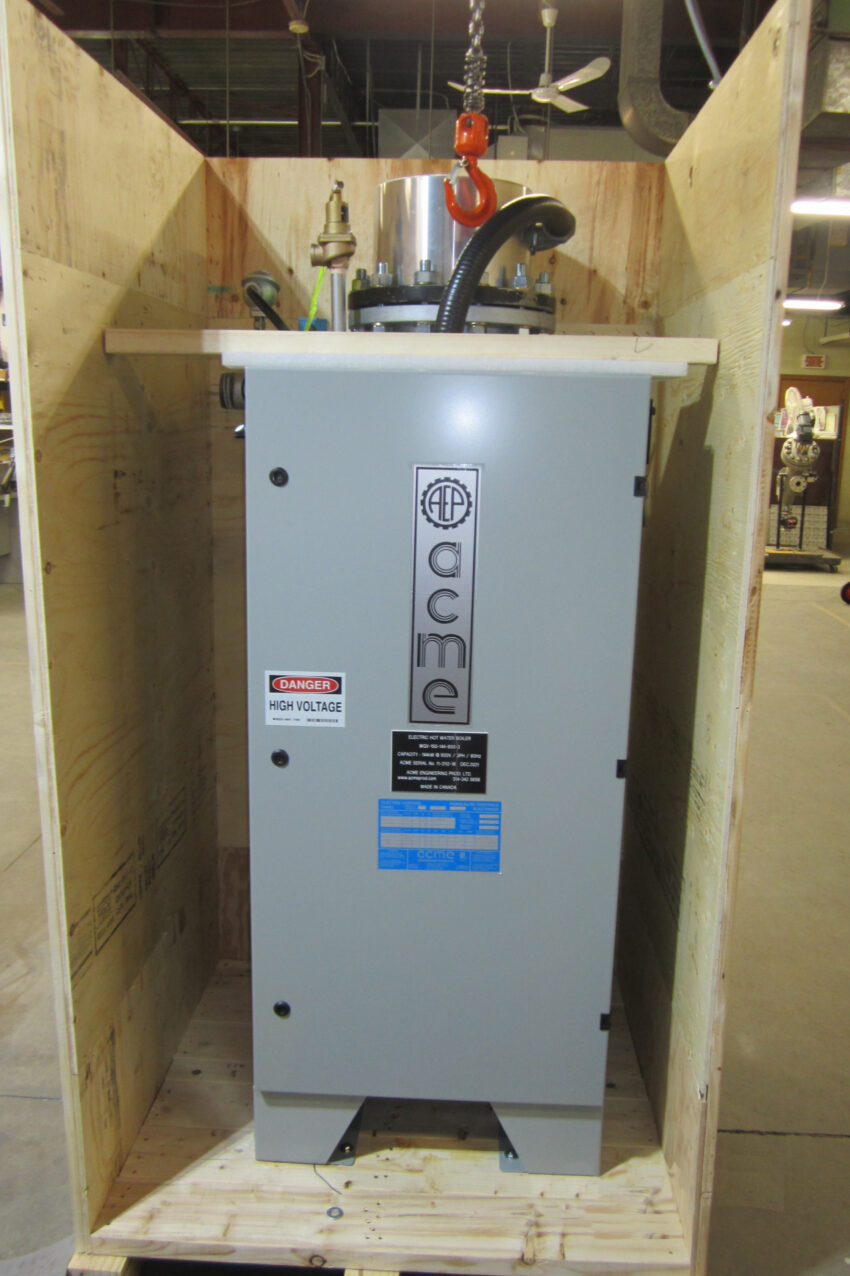To address climate change, states and cities are increasingly phasing out fossil fuel use in commercial buildings in favor of clean, green electric options. Today, a common goal is the conversion of aging buildings to accommodate eco-friendly electric boilers that provide hot water to tenants.
When upgrading to commercial electric boilers in space-constrained urban areas, however, there are several important issues to consider:
• In any conversion to electric boilers, the first step for property managers or boards of directors is to call their power company and ask, ‘Are you able to give us the power we need?’ You will need access to hundreds, if not thousands, of amps. Without it, the project cannot proceed. Most buildings only have access to 480V, three-phase electrical power.
• In the conversion, physically moving and manipulating a large electric boiler through doors and narrow corridors during installation can be extremely difficult – even impossible – particularly in older, space-constrained buildings.
Getting the boiler through doors into the building can be a challenge when a typical doorway in an older building is only 30 inches wide or less. You’ll need to manipulate the boiler into the building and probably fit it into a small elevator to move it to the basement or a service room.
Instead of trying to get one big boiler into the building, it is often much easier to move in several smaller boilers and then install and interconnect them where there is space available.
For example, Slim Series units by Acme Engineering are designed to produce ample hot water while easing conversion and installation with an ability to “squeeze through” narrow passageways and fit into smaller spaces without costly demolition. With 24” widths, the systems are specifically built narrow so they can pass through existing 26” doors or corridors and require minimal floor space. The compact units can fit into service elevators for easy access to the building’s basement. Boilers with one pressure vessel tube can deliver 45-180 kW and those with two pressure vessel tubes can provide 225-360 kW.
• Since building tenants rely on the electric boilers for hot water daily, investing a little more in the initial purchase can pay off dramatically in increased long-term reliability and longevity.
While there are some smaller, commercial boilers in the market that will typically last from 5 to 10 years before replacement is required, Acme’s electric boilers are designed to an industrial standard that will last decades. In fact, some of the company’s electric boilers were used continuously for over 35 years before refurbishment was needed.
As commercial building managers increasingly convert from fossil fuel burning to eco-friendly electric boilers to combat climate change and promote health, consulting with an expert can simplify the process, reduce total cost, and increase reliability and longevity.
For more info, contact Robert Presser at Acme Engineering at e-mail: rpresser@acmeprod.com; phone: (514) 342-5656; or web: www.acmeprod.com/acme-slim .

